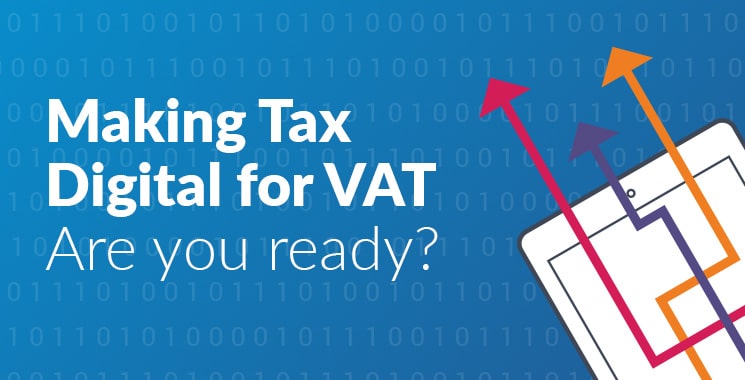Making Tax Digital (MTD) for VAT Changes from April 2022
15/01/2022 - 5 minutes readMaking Tax Digital (MTD) for VAT changes from April 2022 include mandatory requirements for all VAT-registered businesses from 1 April this year to file VAT returns digitally through MTD, regardless of turnover.
HMRC is now reminding businesses below the £85,000 threshold of the steps which they need to take to be ready for MTD for VAT changes from April 2022 Previously only VAT-registered companies with income over £85,000 had to file their VAT returns through MTD.
Businesses need to have signed up to MTD for their first VAT return starting on or after 1 April 2022. They may not be required to make their first submission via MTD until summer 2022 under the MTD for VAT changes from April 2022.
These MTD for VAT changes from April 2022 extend MTD requirements to smaller VAT businesses from April 2022. They build on the successful introduction in April 2019 of MTD for those VAT businesses with taxable turnover above the VAT threshold.
When Do Businesses Must Sign Up to MTD
Businesses must sign up to MTD at least five days after their last non-MTD VAT return deadline date, and no less than seven days before the first MTD VAT return deadline date or the company may have to pay VAT twice.
MTD for VAT changes from April 2022 aims to tackle that part of the tax gap caused by error and failure to take reasonable care, by removing opportunities to make certain types of mistakes in preparing and submitting tax returns.
Under the new rules, it will be mandatory to keep digital records under MTD. This can be done through software. Where a business chooses to use bridging software, digital links must be in place to ensure that records are kept digitally as information is transferred between different platforms.
Those who do not sign up will be charged a penalty for failure to do so.

Operative date – MTD for VAT changes from April 2022
From their first VAT period starting on or after 1 April 2022, VAT registered businesses (including self-employed and landlords) that are not already required to operate MTD under the requirements applying from 1 April 2019 will have to:
- – keep their records digitally (for VAT purposes only)
- – provide their VAT return information to HMRC through Making Tax Digital compatible software
As of December 2021, nearly 1.6m taxpayers had joined MTD for VAT with more than 11m returns submitted. Around a third of VAT-registered businesses with taxable turnover below £85,000 have voluntarily signed up to MTD for VAT ahead of April 2022.
Exemption from MTD Online Filing
Some VAT-registered businesses may be eligible for an exemption from MTD, if it is not reasonable or practicable for them to use digital tools for their tax. If a business has previously been granted an exemption for VAT online filing, this will carry over to MTD VAT requirements.
HMRC has made it clear that cost alone will not be an acceptable reason for an extension to be granted under MTD for VAT changes from April 2022
Since April 2019, businesses with a taxable turnover above £85,000 have already been required to follow MTD, keeping digital records and filing VAT returns using MTD compatible software.
We have covered the changes to VAT Procedures in a separate article here.
How to Sign Up to MTD VAT
To sign up to MTD VAT, businesses, or an agent on a businesses’ behalf, need to:
- – Step 1: Visit gov.uk and choose MTD-compatible software
- – Step 2: Keep digital records starting from 1 April 2022 or the beginning of their VAT period
- – Step 3: Sign up and submit their VAT return through MTD
Agents can sign up on behalf of a business, although businesses remain responsible for meeting their VAT obligations.
Further details are available here.
How can MCL Accountants help?
Contact MCL Accountants on 01702 593 029 if you have any queries on Making Tax Digital – MTD for VAT changes from April 2022 or if you need any assistance with the preparation and submission of your business accounts or self-assessment tax returns to HMRC.
- ABOUT
- REQUEST A QUOTE
Ishan provides financial management, taxation and transactional advice to business entities of all sizes. His expert areas include statutory compliance, business taxation, personal tax & transactional processing and systems. Industry sectors include professional services, retail, hospitality and entertaining & media and advertising services.

0 Comments